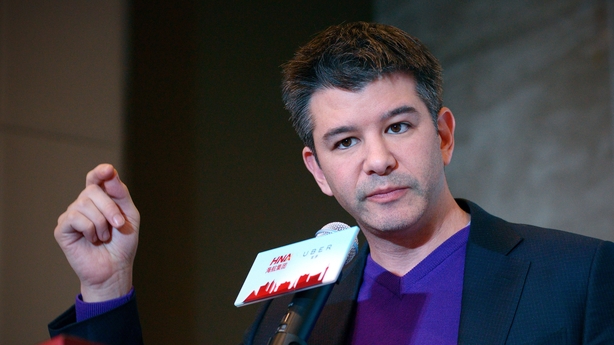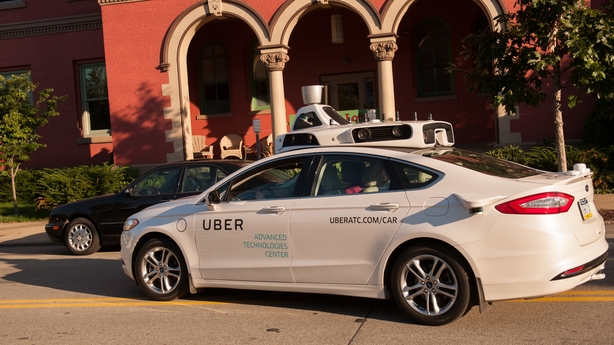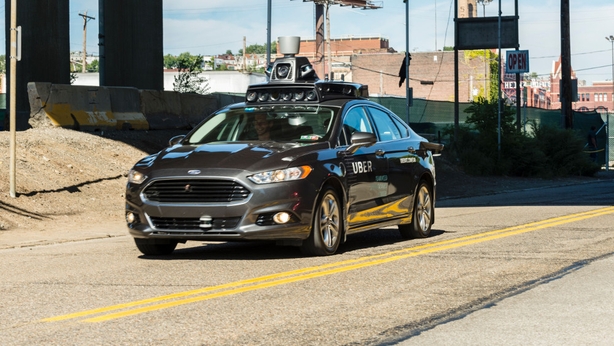Over the past few years, to those of us on the outside looking in, watching Uber has been like observing a car crash in slow motion.
At the wheel, Travis Kalanick - co-founder and CEO of the company who was there with Garret Camp on a snowy evening in Paris in 2008 when problems getting a cab sparked an idea that would ultimately disrupt the world of transport.
It started with an app that enabled the user to request a black high-spec car in a few cities, but quickly using more sophisticated technology morphed into a smartphone based ecosystem to connect those needing a reliable lift with someone willing to drive them for a fee.

Today, Uber is in over 600 cities around the world including Dublin, and has become one of the most influential technology companies in the world.
It employs thousands of people directly and indirectly, including at an office in Limerick where it is growing a 300-strong workforce.
The company has raised a massive $8.8bn in capital over 14 rounds from 78 investors - among them some of the most prominent venture capital firms and individuals in the world.
Over eight years since it was founded, it has ballooned in value to an eye watering $68 billion and is making revenues of $3.4 billion in a quarter (although it has yet to turn a profit).
And yet, despite its rapid growth, the extraordinary disruption it has caused to an industry and its massive valuation, Uber looks more vulnerable now than ever before.
Rudderless, thanks in the main to the resignation on foot of investor pressure earlier this week of its contentious CEO Kalanik, who has become increasingly tarnished in recent months by an astonishing string of scandals.
But it also lost board members and other senior executives, as it became more and more engulfed in a toxic and chaotic atmosphere.
It currently has vacancies for a chief executive officer, chief operating officer, chief financial officer, head of engineering and general counsel.
In effect an entire top executive team.
The individual scandals leading to this situation are too many to list in detail, but include a litany of sexist, racist and distasteful episodes that have come to define the company.
There was the sexist joke delivered by Kalanick when he referred to his own desirability to the opposite sex as "Boob-er".

There have been claims that Uber employees tracked the movements of prominent individuals, that it used a tool called Greyball to identify and then deny service to authorities in cities where it was less than welcomed by the rules and that it used secret software called Hell to spy on drivers working for rival Lyft.
Kalanick was also targeted on social media for the company's reaction to President Donald Trump's immigration ban earlier this year, leading to the Twitter hashtag, #DeleteUber.
And then there was the video that emerged of the then Uber boss swearing at one his drivers in an argument over the rates they could charge.
But the seeming accepted culture of sexism at the company seems to be the most pernicious.
A former engineer, Susan Fowler, left and then went public earlier this year about alleged sexual harassment and discrimination.
Earlier this month 20 employees were fired following the resultant probe into the allegations.
It also emerged that Uber executives had obtained and shared the medical records of a female passenger in India who was raped by an Uber driver, in a bid to undermine her claims.
Board member, David Bonderman (who is also chairman of Ryanair) quit his role as an Uber director after he made a sexist joke during a staff meeting about tackling the problem of sexual harassment at the firm.
A clue to how things have gone so catastrophically wrong can be found in the report compiled by the firm of former US attorney general Eric Holder.
He and Tammy Albarran found Uber's values had been used to justify poor behaviour.
Growth of the business was to trump everything else, including proper management control of employees, who were encouraged to do whatever it took to further their own and the company's success, they discovered.
The result seems to have been a free-for-all culture and aggressive tactics that have become the hallmarks of the business.
Uber marched on into a large number of cities and began offering its service, even though the rules in many forbid it.
It launched self-driving vehicles on California's roads last year without permission.

It has even been accused of stealing autonomous vehicle technology from Google's Waymo unit and engaging in underhand dirty tricks to undermine its competitors.
It's an extraordinary situation for a company that has so much going for it to find itself in.
Let's be clear, Uber is unlikely to implode or disappear as a result of this.
Too many venture capitalists have too much money invested in it to let that happen.
But it does serve as a salient reminder to those involved in scaling a start-up, particularly aggressively and across multiple locations, that doing so cannot be done at any cost.
Also, that the correct culture and management systems in a business need to be established early on and enforced to ensure employees remain on the straight and narrow in the helter-skelter world of rapid expansion.
And that when it comes to moving a start-up from a good idea to a sustainable high-growth business, a founder perhaps isn't always the best person to lead.
Comments welcome via Twitter to @willgoodbody







